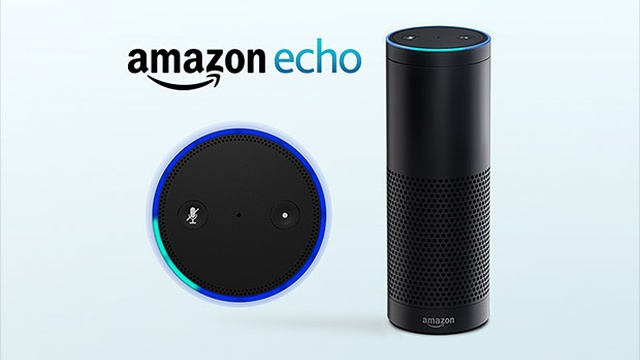 I never get tired of this: hold down the button and tell Siri to set a timer. It has, at the very least, made me a better cook. As Marco Pierre White said, cooking is part art and part exact chemistry, so measure and time precisely.
I never get tired of this: hold down the button and tell Siri to set a timer. It has, at the very least, made me a better cook. As Marco Pierre White said, cooking is part art and part exact chemistry, so measure and time precisely.
I’m not alone, at least as far as timers are concerned. Many people use voice commands on their devices to set them. I know this because a gripe about Amazon’s Echo and Google Home is the inability to name multiple timers on those devices.
Ever since the mid-1980s, when Star Trek flaunted a computer that responded to natural voice commands, there has been a concerted effort to create such technology. The idea has been around for longer, but even the creators of Watson — IBM’s talkative genius — credit Star Trek for the idea.
Regardless of origins, voice assistants are on the verge of explosive growth (or at least many bets are hedged towards that). Watson is a standalone machine with a lot of reach into information. But the newer breeds of virtual personal assistants — let’s call them VPAs — live on the banks of distributed computing and high-speed connectivity we now call “the cloud”, communicating with us through our smartphones and, more recently, through “intelligent” speakers.
Amazon Echo was the first such speaker, released two years ago without much fanfare. Last year, Amazon made the Echo more widely available. The hubbub was enough to prompt Google into launching a competing product, Google Home. Predictably, many people are now looking at Apple to release its own version to “validate” the trend.
But who needs Apple? This year’s CES made two things abundantly clear: first, many companies are hoping that VPAs will differentiate their products, and second, most are using Alexa (the AI behind Echo) to do it. How we got here is not hard to trace: Amazon was ahead of everyone to open up developer access to its platform.
Alexa’s dominance of CES surprised even Amazon, which had no official presence at the trade show. Admittedly, a lot of the implementations seem dodgy. Even though Alexa has the talent, you still need good hardware (especially microphones) and decent integration.
But it is clear Amazon wants the market to sort itself out and isn’t imposing strict quality control for Alexa releases. This is contrary to rivals Microsoft, Apple and Google, which keep a tight lid on their systems (despite having developer tools). For example, Google’s latest VPA incarnation, Google Assistant, mainly only works on its new Pixel phones (and Google Home). Samsung is apparently so annoyed by this that it is prepping its own VPA.
So, game over? Not quite. Here it becomes a bit complicated. First, there is the distinction of whether Alexa and its peers are platforms or services. In cars, they are the latter: BMW is one of several brands to introduce Cortana (Microsoft’s VPA) into its cars. But BMW specifically has created a proprietary and tightly controlled platform for its connected cars. Likewise, even the more open car brands that are adopting Alexa, Cortana, Now (Google) and Siri (Apple) into their vehicles already have technology foundations.

In contrast, the VPA is potentially the platform of future smart homes. Currently, smart home technology is a motley array of unrelated smart devices, with no cooperation. They are crying out for unification, a Qin Shi Huang of the smart home. VPA speakers are perfect for this, and Amazon Echo is leading the charge.
But Apple is better established as a lifestyle brand and may be able to edge ahead if it can get a competitor out of the door. Google, meanwhile, has a huge advantage: data. The ubiquity of its services in our digital lives ensures Google of ample data to mine for our preferences, plus it is more inclined to follow us wherever we go — because it already does.
That said, data isn’t absolute. There are several new VPAs coming out that argue big data is not as important as good, nuanced “small” data. Newcomers such as x.ai and Ozlo are part of this school. Yet these are specialised VPAs, geared to specific tasks (x.ai schedules meetings over e-mail for you). The big guys are all fighting for the general-purpose VPA, the digital girl Friday.
Outside of the data and use-case arguments, there also remains the issue of voice recognition: just how good are these devices at understanding us? Results vary: the Echo fluctuates between being so bad that it thinks you want hunks of poo to so good it accidentally orders doll houses when a little girl asked it to play dolls with her (and subsequently a radio report on this triggered the Echos of listeners to order more doll houses). Google Home is apparently a little better at this, while Siri is lagging (a pity, since it was the first of the modern VPAs). But none has mastered long-form or follow-up questions.
A Google video showing off the capabilities of its smart speaker:
Yet the idea of talking to our devices is now becoming entrenched. There are televisions, air conditioning units, fridges, drones, lights, plugs, cars, routers smart hubs, banking apps… and that’s just Alexa.
It is only a matter of time before we discuss the ethics of this: should you get a VPA when you are born, so it can learn all about you? Who owns that VPA? Should you be expected to pay to keep it going, even if not having it becomes a distinct social disadvantage?
The VPA trend is still mostly hype and far from defined. The winners have not been declared yet, though we can see who the horses are that worth betting on. My money is on Amazon first, followed by Microsoft, with Google and Apple as the dark thoroughbreds. Amazon has the right mindset and developer support, while Microsoft holds the potential to do the same. Google has the data, but remains too distant to really comfort developers. Apple is so insular it might as well be a billionaire’s wine estate.
But that is still simplistic, since we’re not even discussing Baidu, Samsung and Facebook, three more heavyweights with potential VPA platforms. This is a game in the making, still defined more by speculation than a score.
Today I set timers; tomorrow I want to do more.
- James Francis is a freelance writer whose work has appeared in several local and international publications




